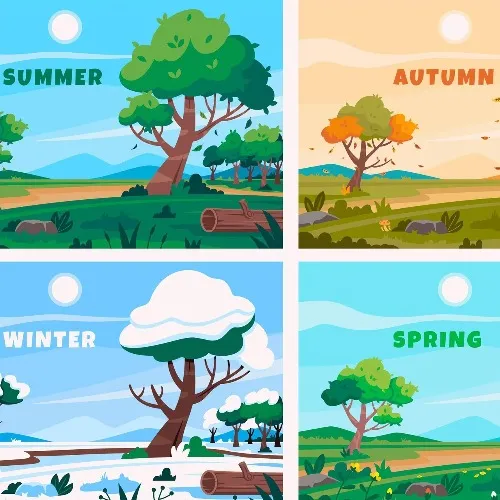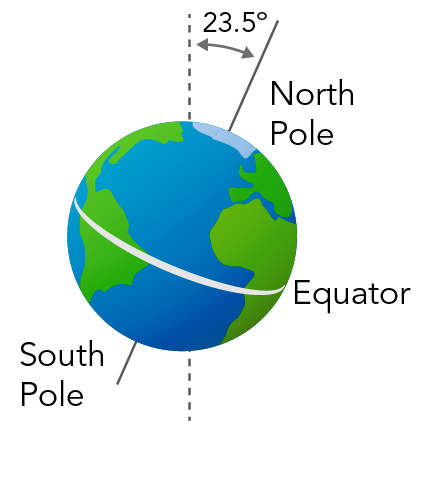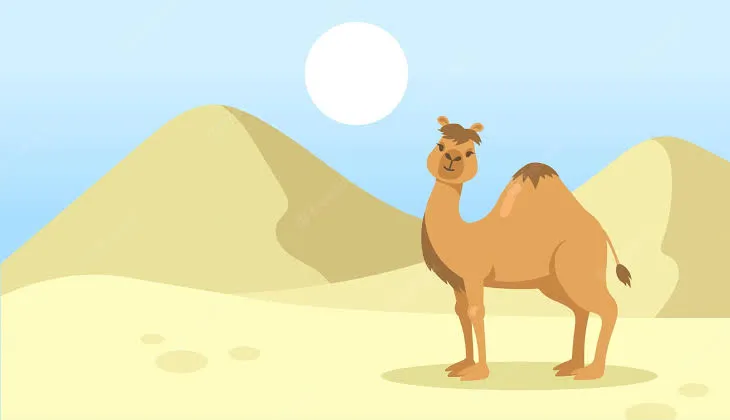

Why do we have different seasons?
Hey, Christmas is around so ready to pull in those heavy padded clothes, lighting fire in the chimneys for the pleasant experience in the winter?? Why so, might ask a south american!! Because they might argue that the temperature generally would not go under 30 degrees so why the heavy padded clothes unless they want to melt themselves under the heat.
What?? Yes you heard it right.. seasons do not go hand in hand everywhere. Winters in northern hemisphere would generally mean Summers in southern hemisphere.. So if you are from countries like India, China, USA and friend of yours from say Argentina, Australia both decide "Let's meet in the winter!!", make sure to get the months right else one of you might be left hanging/waiting for the other.
Moving on to the actual question in hand, the seasons that we experience are a result of the earth's orbit around the sun. Now we all know why do we have night and day because of earth's rotation right?? Similarly seasons are a result of both rotation which happens ~24 hours and revolution which takes ~365 days to complete.
Also, the earth's orbit or the path it takes to complete the revolution around the sun is not exactly a circle. Its slightly elliptical!! Ahhaaaa,,, one might say, so we have the answer when planet earth is near to the sun via the elliptical orbit we have summers and when it is farther we have winters. Well this ain't right! If that were the case everywhere we would have same seasons right? And we just said that they aren't!
Because the distance between earth's farthest point (aphelion) and closest point (perihelion) are ~9,10,00,000 miles and ~9,40,00,000 miles respectively. Although the difference may seem huge they are not enough to cause seasonal changes in case of planet earth. Also you might be facing winter when the earth would be at perihelion and summer when at aphelion (yes, the people from northern hemisphere, this is you!!)
So what is the actual answer? Well as we mentioned above, it revolution and rotation together, to be more precise revolution and at which angle it rotates continuously. Angle you say? Yes!! Our earth does not rotate at a straight upward position or a straight axis. It is titled ~ 23.5 degrees, which scientists theorize happened due to some astronomical collisions long back.

Now because of this and where the earth is based on its orbit, the tilt would cause a certain area of earth say countries in northern hemisphere to receive more direct sunlight or rather the light would be spread out more than say in countries around southern hemisphere. This would also mean the days would be longer in the northern hemisphere hence that place on the earth would be much warmer hence summer.
This behavior would be kind of reversed when the earth reaches a opposite point in it's orbit around the sun.
The time it takes to reach the opposite points, it would be obvious the position of the tilted axis would result in change in the seasons too! Yes and hence we have Spring, Autumn.. Now we have to understand this too, that not all areas experience this step by step season change. For some say equatorial countries i.e. countries which are kind of near equator like Kuwait, Singapore, Saudi Arabia observe negligible degree of season change. The reason for the same is the amount and intensity of sunlight it gets over the time!
Well now you know why there are different seasons all around! All planets in our solar system are said to observe these seasonal changes. And yes they do tilt too similar to earth however at different degrees though. So while we might observe season changes like say every quarter or so, some have it less or more as per their orbit. Mars is said to observe these around every 7 years while Neptune is one planet where it is said the changes are after huge 40 years.
Do you know why we used ~ or approximately for the duration of rotation and revolution?? Because it is approximation of the time it takes. See Why do we have leap year for more details.
Also we know that the Earth's tilt is the cause for the seasons. So what if there was no tilt? What would have been the case scenario. Probably that would have meant the sun would have directly shone on the equator ( emphasis on directly ) and probably the seasons might not have changed! This is though probably is an assumption based on what we have understood so far!
Again we spoke about summer, winter, spring and autumn but we did not speak about rains right?? What makes it rain? Stay tuned for the same!!.
Until next time, let the curious mind works its way for more questions!
Powered by Froala Editor


